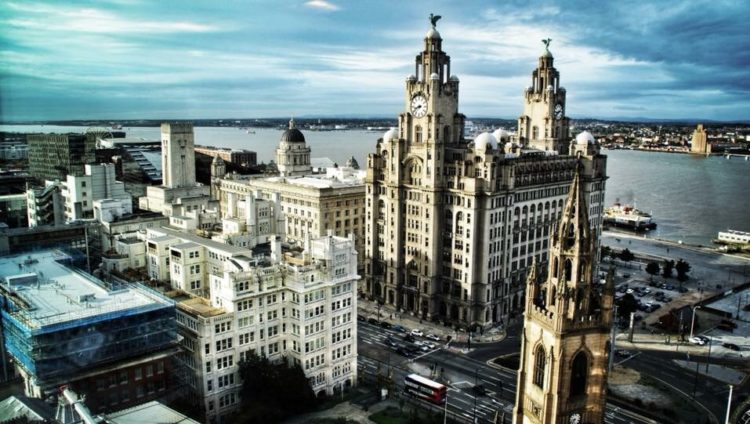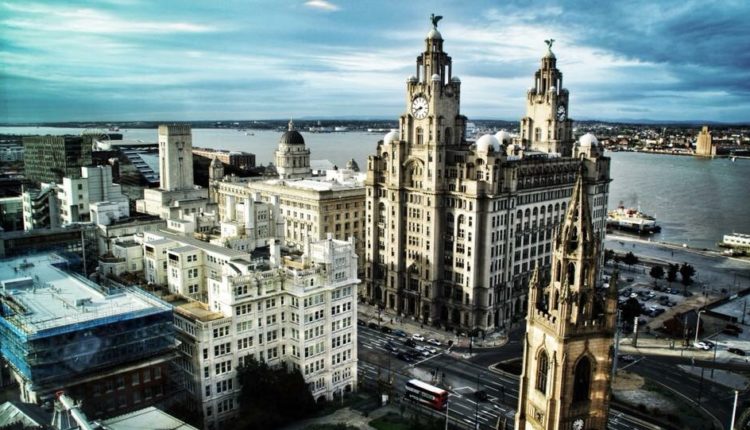Analysis from accountancy firm EY and research body Centre for Towns reveals Liverpool attracts fewer overseas investors than most other UK ‘core cities’. Tony McDonough reports

Liverpool is close to the bottom of the league of UK cities for attracting investment from overseas, new analysis reveals.
And one business leader in the city has told LBN that Liverpool needs to be less “parochial” and has to have a more consistent message before it will attract more foreign investment.
New research
A report published by accountancy firm EY and research body Centre for Towns looks at the growth of foreign direct investments (FDIs) into the UK towns and cities from 1997 to 2017.
It showed that out of the country’s 12 ‘core cities’ only Nottingham, Sheffield and Cardiff fared worse than Liverpool last year when it came to attracting FDIs. Liverpool attracted 10 FDIs during 2017 with Nottingham and Sheffield recording six and Cardiff just three.
Inevitably, London was the top city in 2017 with 459 FDIs followed by Manchester (45), Edinburgh (29), Birmingham (22), Leeds (19), Glasgow (16), Newcastle-upon-Tyne (14) and Bristol (13).
Over the 20-year period from 1997 Liverpool attracted a total of 90 FDIs, the second-best location in the North West but a long way behind Manchester which saw 413 FDIs. They were followed by Warrington (56), Salford (32), Runcorn (24), Bolton (21), Ellesmere Port (19), Chester (18), Preston (17) and Stockport (17).
Global strategy
Liverpool has invested significant resource in selling itself to the world over the past few years. For much of the past 20 years it has attended the MIPIM international property and investment expo in Cannes and in 2010 was present at the Shanghai World Expo.
In 2014, 2016 and this year the city hosted the International Business Festival with tens of thousands of business delegates flocking to the city from across the globe. And while the event has been successful in attracting an estimated £1bn of investment into the UK, it seems too little of it has come to Liverpool.
There has also been criticism in recent years about the number of different teams and agencies responsible for inward investment into the Liverpool city region. Each of the six local authorities, Liverpool, Wirral, Sefton, Knowsley, Halton and St Helens have their own economic development units.
In the case of Liverpool, for the past 20 years this function has been carried out in an arms length fashion by Liverpool Vision, which comprises Marketing Liverpool and Invest Liverpool. It will cease to exist as a separate entity in the next few weeks with its functions coming back fully in-house to the city council.
Other parties involved in inward investment have included the Liverpool City Region Local Enterprise Partnership as well as the Liverpool City Region Combined Authority, which is headed by Metro Mayor Steve Rotheram. In the last few weeks Mr Rotheram has announced a new ‘One Front Door’ policy to streamline inward investment activity across the city region.

Investment opportunities
Frank McKenna, chief executive of business lobby and membership organisation, Downtown in Business, said the city was often “too parochial” when it comes to investment opportunities.
He told LBN: “I am not surprised at these figures and I don’t think we have offered the most attractive proposition to outside investors. If you look at local investment opportunities you find that it is easier for people from within the city to get the support.
“It all seems a bit too parochial and I think we are a little complacent, too. And we have to ask, what is the message we are sending out to potential investors? I don’t think that has been consistent enough.
“We have had a number of different marketing strategies over the last few years and I think we are about to see another new one. I’m not aware that other cities in the UK have changed their message as much as we have.”
Mr McKenna also questioned whether the balance between the visitor and commercial economies was correct, adding: “We have seen fantastic growth in our visitor economy and that is a real positive – but are we sending out the message that Liverpool is a party town and not a commercial one.
“There has been a suggestion the we might not host the International Business Festival next time. If we want to reverse the investment trend then I think dropping the festival would be a huge mistake.”

Full picture
However, Liverpool Vision’s chief executive Max Steinberg, who will stand down from his role in the next few weeks, insisted the figures in the EY report do not tell the whole story of Liverpool’s successes.
He explained: “It is important to recognise that most investment comes from companies who are already located in a city or region, so although FDI figures are very important, they don’t tell the full picture. These figures also don’t show the value and strategic importance of the FDI projects we have attracted.
“Over the last few years we have implemented an ERDF-funded programme with partners across the city region to attract foreign-owned SMEs and many of those projects are currently being finalised.
“By the end of April, the project will have attracted at least 20 new foreign-owned SMEs in addition to the work undertaken by DIT and individual authorities. Combined with major developments such as Liverpool Waters, Knowledge Quarter and Liverpool2, there is an exceptionally strong pipeline and businesses are rightly confident.”

